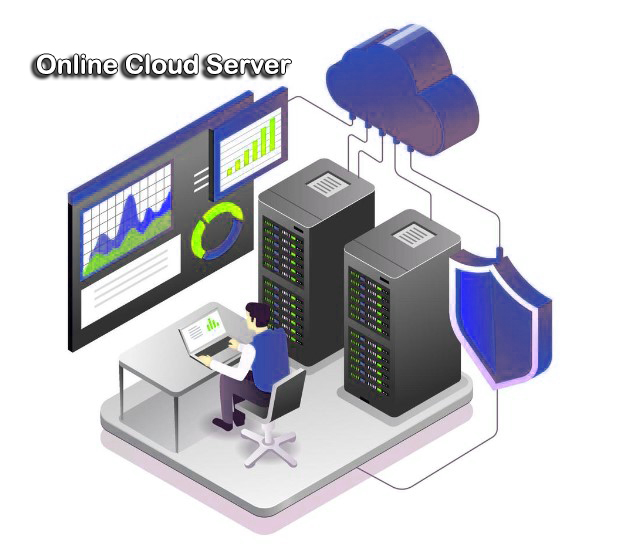Online Cloud Server: Transforming Business Operations with Cloud Computing
In today’s digital age, businesses of all sizes are turning to online cloud servers to enhance efficiency, scalability, and cost-effectiveness. As a cornerstone of modern IT infrastructure, online cloud servers offer a myriad of benefits that can significantly transform business operations. This article explores the concept of online cloud servers, their advantages, key features, and how to choose the right cloud server for your business.
What is an Online Cloud Server?
An online cloud server is a virtual server hosted on a cloud computing platform. Unlike traditional physical servers, cloud servers operate in a virtualized environment, providing on-demand access to computing resources such as CPU, memory, and storage over the internet. Cloud servers are maintained and managed by cloud service providers, eliminating the need for businesses to invest in and manage physical hardware.
Key Features of Online Cloud Servers
Online cloud servers come with a range of features designed to meet the diverse needs of businesses. Here are some key features:
- Scalability: Cloud servers can scale up or down based on demand, allowing businesses to adjust their resources according to their needs without any significant investment in hardware.
- Flexibility: Cloud servers offer flexible configurations, enabling businesses to choose the right combination of CPU, memory, and storage that fits their specific requirements.
- Reliability: With high availability and redundancy, cloud servers ensure that applications and data remain accessible even in the event of hardware failures.
- Security: Cloud service providers implement advanced security measures, including data encryption, firewalls, and regular security updates, to protect data and applications.
- Cost-Efficiency: Cloud servers operate on a pay-as-you-go model, allowing businesses to pay only for the resources they use, which helps in managing budgets effectively.
- Global Reach: Cloud servers can be deployed in multiple geographic locations, ensuring low latency and high performance for users across the globe.
Advantages of Using Online Cloud Servers
- Enhanced Performance and ReliabilityCloud servers are designed to offer high performance and reliability. With features like load balancing, automatic failover, and redundant storage, businesses can ensure their applications run smoothly without interruption.
- Cost SavingsBy eliminating the need for physical hardware and maintenance, cloud servers help businesses save on capital expenditures. The pay-as-you-go pricing model further reduces costs, making cloud servers a cost-effective solution for businesses of all sizes.
- Scalability and FlexibilityCloud servers provide unmatched scalability, allowing businesses to quickly scale their resources up or down based on demand. This flexibility is particularly beneficial for businesses experiencing rapid growth or seasonal fluctuations in demand.
- Improved SecurityCloud service providers implement robust security measures to protect data and applications. With features like data encryption, multi-factor authentication, and regular security audits, businesses can ensure their data remains secure.
- Accessibility and CollaborationCloud servers enable remote access to applications and data from anywhere with an internet connection. This enhances collaboration among team members, allowing them to work together seamlessly, regardless of their location.
- Disaster Recovery and BackupCloud servers offer reliable disaster recovery and backup solutions, ensuring business continuity in the event of data loss or system failures. Automated backups and geographically distributed data centers help safeguard data against unexpected incidents.
Choosing the Right Cloud Server for Your Business
When selecting an online cloud server for your business, consider the following factors:
- Business RequirementsAssess your business needs and objectives. Identify the types of applications you plan to run, the amount of data you need to store, and the level of performance and availability required.
- Service Provider ReputationChoose a reputable cloud service provider with a proven track record of reliability, performance, and security. Read reviews, check customer testimonials, and evaluate the provider’s service level agreements (SLAs).
- Scalability OptionsEnsure the cloud server offers scalable solutions that can grow with your business. Look for providers that offer flexible resource allocation and the ability to scale resources up or down based on demand.
- Security FeaturesEvaluate the security measures implemented by the cloud service provider. Ensure they offer data encryption, multi-factor authentication, regular security updates, and compliance with industry standards.
- Cost StructureAnalyze the cost structure of different cloud servers. Consider the pay-as-you-go model, subscription plans, and any additional costs for features like data transfer, storage, and support.
- Customer SupportOpt for a cloud service provider that offers comprehensive customer support. Look for providers that offer 24/7 support, multiple support channels, and a dedicated account manager to assist with your needs.
Popular Cloud Service Providers
Several cloud service providers dominate the market, each offering unique features and benefits. Here’s a look at some of the leading providers:
- Amazon Web Services (AWS)AWS is a leading cloud service provider, known for its extensive range of services and global presence. AWS offers robust security, scalability, and performance, making it suitable for businesses of all sizes.
- Microsoft AzureAzure is a popular choice for businesses already using Microsoft products. It offers seamless integration with other Microsoft services and provides a comprehensive suite of cloud solutions.
- Google Cloud Platform (GCP)GCP is known for its data analytics and machine learning capabilities. It offers a user-friendly interface and competitive pricing, making it a great option for businesses focusing on data-driven applications.
- IBM CloudIBM Cloud is known for its enterprise-grade solutions and hybrid cloud capabilities. It is a strong contender for businesses looking for robust security and compliance features.
- Oracle CloudOracle Cloud is designed for businesses that require high-performance computing and extensive database management. It offers a range of cloud services tailored for enterprise needs.
Conclusion
Online cloud servers have revolutionized the way businesses operate, offering enhanced performance, scalability, cost-efficiency, and security. By choosing the right cloud server, businesses can unlock new opportunities for growth and innovation. Whether you’re a startup looking to scale quickly or an enterprise seeking to optimize your infrastructure, online cloud servers provide the tools and services you need to succeed in today’s competitive digital landscape.
